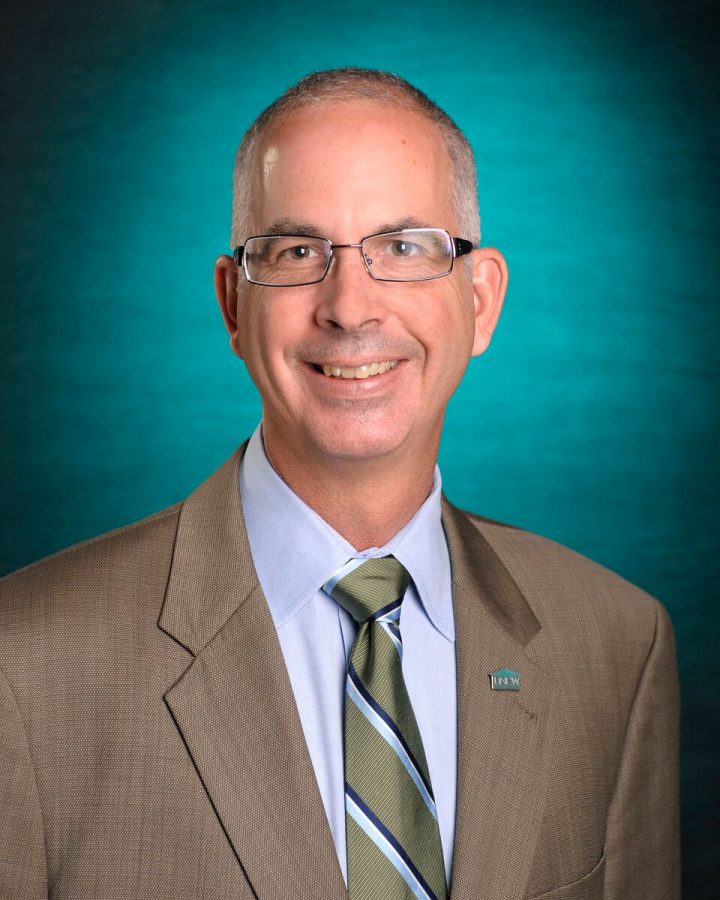Faculty Senate approve new teaching evaluation clause in handbook
Photo courtesy of Jeff Janowski/OUR
Dr. Stephen Meinhold, Faculty Senate president, presented the new teaching evaluation section at the latest Board of Trustees meeting.
January 21, 2018
The UNC Wilmington Faculty Senate approved of an update to the teaching evaluation section of their handbook on Tuesday, Jan. 16, according to Faculty Senate president, Dr. Stephen Meinhold.
At the Board of Trustees [BoT] Educational Planning and Programs Committee meeting on Thursday, Jan. 18, Dr. Meinhold updated the BoT on current efforts by the university to hire new faculty members.
According to Dr. Meinhold, the university is in the process of hiring over 70 positions over all of the departments at UNCW. And, while they find new faculty to fill necessary positions, they all are looking at how they evaluate their current faculty members.
According to the newly approved update on teaching evaluations in the Faculty Senate Handbook, “The Evaluation Committee of the Faculty Senate is charged with regularly reviewing both student and peer evaluation procedures, and with reporting and making recommendations for improvement to the Senate.”
Faculty are evaluated by students each semester electronically through IDEA, which sends an email to the student and asks that they participate in anonymous evaluations of their professors. Faculty and peers are given these evaluations in order to improve for the next semester and are used when the faculty member is up for reappointment.
Peer evaluations are also used in reappointments. Peers from the same department of the faculty member will sit in on classes and write up a report. Annual reviews may also include portfolios or face-to-face meetings with a faculty member’s department chair.
The rest of the approved update said, “Because numerous studies have indicated that both peer and student evaluations are necessary for the equitable evaluation of teaching effectiveness, it is strongly suggested that both peer and student evaluations be given emphasis in personal recommendations.”
Chancellor Jose Sartarelli chimed in and said that “teaching, research and scholarship” are the three things for which they evaluate faculty.
Dr. Meinhold also expressed desire in increasing participation in IDEA forms, however, he did not explain how the Faculty Senate planned on doing so.















